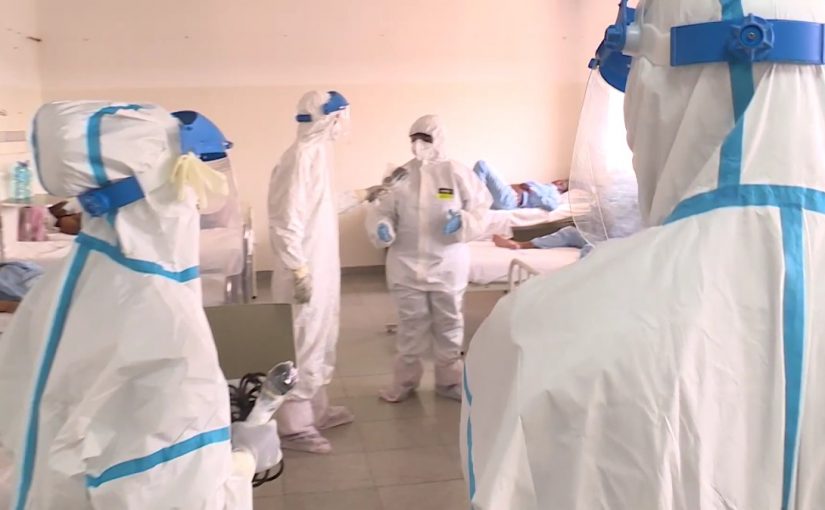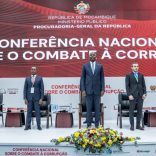Mozambique: Schools to receive textbooks two months before classes begin
Mozambique: Government working to protect health professionals

Photo: Polana Caniço isolation centre in Maputo city. [Screen grab: Miramar]
Mozambican Health Minister Armindo Tiago on Wednesday told the Mozambican parliament, the Assembly of the Republic, that the government, in its attempts to purchase individual protective equipment, to safeguard health workers against the Covid-19 pandemic, has run up against international shortages.
Speaking in a question and answer session between the government and the deputies, Tiago said that some companies who had won a tender in June to provide protective equipment have not yet delivered it due to the shortages.
“Despite these challenging and uncertain conditions”, he said, “the government, in coordination with national and international partners, has made efforts to guarantee the availability of individual protective equipment, medicines and medical equipment”.
As from March, he added, “the country has been receiving, with some regularity, either through acquisitions made by the government or through grants in kind by cooperation partners, individual and collective protection equipment, reagents for Covid-19 diagnosis and medicines for various pathologies”.
Covid-19 had dramatically increased the country’s requirements, Tiago said. Before the pandemic, the Ministry of Health needed three million surgical masks a year, but today the need is in excess of 131 million.
As for N95 masks, specifically designed to reduce exposure to airborne contaminants, before Covid-19 the health service was using 3.5 million a year. Tiago put current needs at over 6.4 million a year.
New needs had also arisen – for Covid-19 tests, visors and infra-red thermometers. “Despite the challenges”, said Tiago, “we have ensured the distribution of this material in all health units, and the stock of individual protective equipment is guaranteed for three months”.
The Minister added that the Covid-19 isolation wards have all been equipped with the necessary equipment, including ventilators, oxygen concentrators, ultrasound equipment and mobile X-ray machines.
As for staff, Tiago said the government has gradually increased its recruitment of health workers, despite the pressure to cut staff costs. In 2019, there were only 2,126 vacancies in the health service – but this rose to 4,846 this year, and 5,520 new staff should be recruited in 2021.
He pointed to an increase in the risk allowance paid to health workers. This had been an extra 15 per cent on the basic wage for doctors, and 10 per cent for other health professionals. But as from June, it has been increased to 30 per cent for all health workers.
Tiago believed that, despite all the constraints facing the health sector, “most health professionals are continuing to give the best of themselves, working in a selfless, dedicated and motivated manner, which can be shown by the continuity of the health services throughout the country”.












Leave a Reply
Be the First to Comment!
You must be logged in to post a comment.
You must be logged in to post a comment.